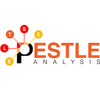Our Pharmaceutical Industry SWOT Analysis examines what external and internal factors affect the pharmaceutical industry.
Have you ever wondered how the world would be without medicines? We won't be sitting here because there is a high chance that we would have been wiped out by some pandemic or even a simple flu.
The usage of medicines is essential to live a healthy life. They not only increase life expectancy but also improve the quality of life. The pharmaceutical industry holds great significance since it is involved in the manufacturing and supplying of medicines.
Since it would be impossible for us to exist without the pharmaceutical industry, today we have conducted a Pharmaceutical Industry SWOT Analysis to analyze what external and internal factors affect the pharmaceutical industry, having already completed our PESTLE Analysis of the pharmaceutical industry.
Before proceeding further and conducting the SWOT analysis, we must examine the pharmaceutical industry's history.

Humans were making medicines even in ancient times. Ancient civilizations such as the Greeks, Egyptians, and Sumerians had their ways of making medicines out of plants and natural substances.
Individuals from these ancient civilizations laid the foundation of the modern pharmaceutical industry. Later in the Middle Ages, the pharmaceutical industry grew further as more advanced medicines developed.
In the 17th century, the Royal Society in England started working on organized scientific inquiry. In this era, Pharmacoepies were published for the first time. They had standardized recipes for drugs.
More effective medicines developed in the next few centuries, and the industry grew. In the 19th century, the pharmaceutical industry developed significantly. Modern technology played a role in the mass production of medicines.
Furthermore, developing advanced microscopes and lab equipment helped chemists develop more effective medicines. The 19th and early 20th centuries played a vital role in the growth of the pharmaceutical industry.
Many cures were developed during this era, and many pharmaceutical companies, such as Elie Lilly, were formed. In the 20th century, the pharmaceutical industry became a global force as the usage of antibiotics became common.
Many pharmaceutical companies, such as Pfizer and Johnson and Johnson, played a significant role in promoting medicines and making people aware of the pharmaceutical industry.
In the following centuries, the pharmaceutical industry grew further. It used technological innovation to develop effective medicines with the least side effects. Moreover, different regulatory bodies, such as the FDA and EMA, also came into existence to ensure safety standards.
Currently, the pharmaceutical industry is one of the biggest industries in the world. The global pharmaceutical industry is worth $1.48 trillion. Now that you guys are aware of how the pharmaceutical industry evolved, let's discuss what SWOT analysis is.
SWOT analysis is a tool that highlights the strengths, opportunities, weaknesses, and threats faced by a business or an industry.
Since SWOT analysis identifies the external and internal factors that impact a business or industry, today, we will conduct a SWOT analysis of the pharmaceutical industry to see what factors affect its operations. Let's proceed further and discuss the strengths of the Pharmaceutical industry.
Strengths of The Pharmaceutical Industry
The strengths of any industry are the factors that provide a competitive advantage to an industry over other industries. In this section, we will look at the pharmaceutical industry's strengths.
Research And Innovation
One of the strengths of the pharmaceutical industry is the research and innovation that takes place in the industry. Pharmaceutical companies invest millions of dollars each year to develop effective medicines.
The pharmaceutical industry's focus on innovation and research sets it apart from other industries.
Intellectual Property And Patents
Intellectual property and patent laws protect pharmaceutical companies from intellectual theft. Hence, pharmaceutical companies feel safe and invest in R&D to develop new medicines and cures.
Moreover, new companies feel safe to operate in the pharmaceutical industry due to the protection provided by intellectual property and patent laws. As a result, more companies are entering the industry, causing the industry to grow.
Regulatory Expertise
The operations of the pharmaceutical industry are overseen by various regulatory authorities such as FDA and EMA. These authorities ensure that the drugs manufactured by pharmaceutical companies are safe for usage.
Due to the strict scrutiny of drugs and pharmaceutical companies, consumers feel safe while consuming the medicines.
Global Reach
The pharmaceutical industry is one of the biggest industries in terms of consumers. People across the globe consume medicines. Hence, manufacturing plants of pharmaceutical companies are present in almost every country.
Currently, more than 20,000 pharmaceutical companies are operating across the globe. Such a huge number of pharmaceutical companies ensure that every patient has access to medicines.
Brand Recognition
Brands in the pharmaceutical industry are well-recognized across the globe. Companies famous for manufacturing effective medicines have built a good reputation and are well recognized.
For example, during COVID-19, people across the globe knew Pfizer, and they preferred to receive the vaccine manufactured by Pfizer.
Strong Financials
Companies in the pharmaceutical industry are financially strong. They can invest a lot of money in R&D. Investments in R&D benefit the entire pharmaceutical industry since they lead to the manufacturing of new medicines.
Moreover, strong financials help pharmaceutical companies to adopt the latest technologies. The adoption of these technologies helps pharmaceutical companies manufacture more effective medicines.

Weaknesses of The Pharmaceutical Industry
The weaknesses section in the SWOT analysis highlights the shortcomings of an industry. In this section, we will discuss the pharmaceutical industry's shortcomings.
High Development Costs
The cost incurred by pharmaceutical companies for developing a drug is very high. This is why it is difficult for new companies to enter the pharmaceutical industry. Moreover, since the cost of drug development is very high, once the drug is manufactured, it is sold at a high price to the patient. Due to this, many patients are unable to afford the drugs.
Pricing Pressure
Pharmaceutical companies are constantly bashed for setting the prices of drugs very high. People accuse pharmaceutical companies of making abnormal profits by setting the prices of drugs high. Due to this claim, the reputation of the pharmaceutical companies is damaged.
Patent Expirations
Pharamacuticle companies have patents to manufacture a certain drug. However, other companies can manufacture the same drug once the patent expires. Hence, when the patent of a pharmaceutical company expires, its market share drops. As a result, patent expirations hurt companies operating in the pharmaceutical industry.
Regulatory Hurdles
It is very difficult for companies to register as pharmaceutical companies due to the paperwork involved. A pharmaceutical company must obtain several licenses and permits before manufacturing or distributing drugs.
These regulatory hurdles make it difficult for pharmaceutical companies to register. Moreover, it inhibits the growth of the pharmaceutical industry.
Research And Development Risks
Pharmaceutical companies face a lot of failures during the drug development stage. Companies often invest millions of dollars, but their drugs cannot pass through clinical trials. As a result, pharmaceutical companies have to bear huge losses.
Supply Chain Vulnerabilities
Companies in the pharmaceutical industry significantly rely on global supply chains for raw materials, machinery, workforce, and distribution activities. Reliance on the global supply chain often results in delays due to disruptions caused by political instability, natural disasters, etc.
Hence, the supply chain of the companies in the pharmaceutical industry is not reliable and is often disrupted.

Opportunities Present For The Pharmaceutical Industry
Opportunities are the chances available for an industry to grow in the future. This section will discuss the chances the pharmaceutical industry has of growth.
Aging Population
As humans age, they tend to fall sick and catch diseases. Hence, the customer base of pharmaceutical companies has a large share of old people. In many countries, such as Japan and Italy, a large portion of the population is above the age of 65.
The increasing population of old people allows pharmaceutical companies to maximize profits by selling medicines to a large population.
Technological Advancements
Technological advancements in different fields, such as genomics and proteomics, allow pharmaceutical companies to develop advanced drugs. Moreover, advancements in Artificial Intelligence enable pharmaceutical companies to target the potential audience and develop more effective drugs.
Emerging Markets
The pharmaceutical industry has the potential to grow further since many economies are currently emerging. For example, India is an emerging market. As the country prospers, the living standards of its people will improve.
The people of India will then demand healthcare services and medicines. This will create the demand for pharmaceutical products, and the pharmaceutical industry will grow.
Telemedicine and Digital Health
Telemedicine has made it easier for pharmaceutical companies to sell their products. Since telemedicine and digital health have emerged, healthcare services and consultations have become more accessible to patients.
As a result, pharmaceutical companies' sales have increased since now more people can get diagnosed and obtain prescriptions from medical specialists through telemedicine.
Collaboration And Partnerships
Pharmaceutical companies have an opportunity to collaborate and come up with drugs that are more effective and have minimum side effects. This will cause the pharmaceutical companies to generate huge sums of revenue.
Moreover, Pharmaceutical companies can form partnerships to expand their operations mutually. Partnerships among pharmaceutical companies will increase the pharmaceutical industry's reach.
Pandemic Preparedness
After COVID-19, governments and individuals know the damage a pandemic can cause. Hence, they are willing to invest money and technology in the pharmaceutical industry to minimize the damage in case of another pandemic.
The pharmaceutical industry has an opportunity to use the latest technologies and develop effective drugs against pandemics.

Threats Faced By The Pharmaceutical Industry
Threats are the dangers an industry faces from the external environment. This section will discuss some of the pharmaceutical industry's threats.
Generic Competition
Every pharmaceutical company has a patent to manufacture a drug for a specific time. After the patent expires, other pharmaceutical companies start manufacturing the same drug. This creates competition among the companies and causes the market share of some companies to drop.
Generic competition among pharmaceutical companies increases rivalry and impacts the industry negatively.
Regulatory Changes
Changes in government regulations can impact the pharmaceutical industry negatively. For example, companies would be repelled to enter the pharmaceutical industry if the government sets new complex requirements for establishing a pharmaceutical company.
Moreover, some regulatory changes may require the existing pharmaceutical industries to alter their operations. This would negatively affect the operations of the existing firms.
Healthcare Cost Containment
Pharmaceutical companies set the prices of drugs high because their production cost is often high. However, since medicines are a necessity, governments and individuals put pressure on pharmaceutical companies to reduce the prices of medicines.
Suppose the government imposes a price ceiling on the prices of medicines. In that case, pharmaceutical companies will experience losses and might decide to exit the industry.
Intellectual Property Challenges
Pharmaceutical companies often face the challenges of intellectual theft. Companies often steal a drug's idea or formula from another company and later manufacture that product under their banner.
Intellectual theft discourages people from entering the pharmaceutical industry. Moreover, it also causes some companies to exit the industry.
Supply Chain Disruptions
The pharmaceutical industry relies on the global supply chain. Pharmaceutical companies source raw materials and technologies from different parts of the world. However, the pharmaceutical industry's supply chain gets disrupted due to political instability or natural disasters.
As global warming increases, the frequency of natural disasters also increases. These natural disasters can disrupt the pharmaceutical industry's supply chain in the future.
Public Perception and Scrutiny
Public perception has a great impact on pharmaceutical company sales. As long as people believe that the pharmaceutical industry helps cure diseases, the demand for pharmaceutical products will be high.
However, if people start forming negative perceptions of the pharmaceutical industry, they might boycott it.

Pharmaceutical Industry SWOT Analysis: Conclusion
The pharmaceutical industry is one of the biggest industries. It cures diseases and provides medicines to patients across the globe. The foundation of the pharmaceutical industry was laid in ancient times.
Over the years, the pharmaceutical industry kept on evolving. In every era, it developed and grew to become what it is today. Currently, the pharmaceutical industry is formal and properly regulated.
In today's article, we conducted a SWOT analysis of the pharmaceutical industry. We discussed the factors that impact the operations of the pharmaceutical industry.
The outcomes of this SWOT analysis can also be stated in the form of a SWOT Matrix. If you want to know more about SWOT analysis, here are more SWOT analysis examples.


